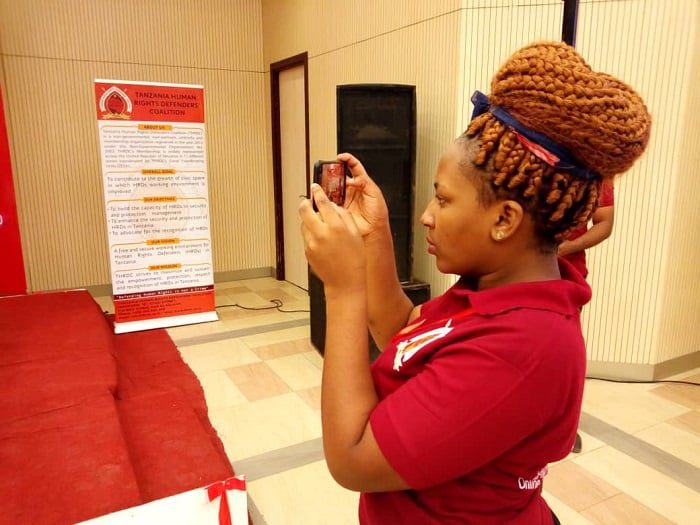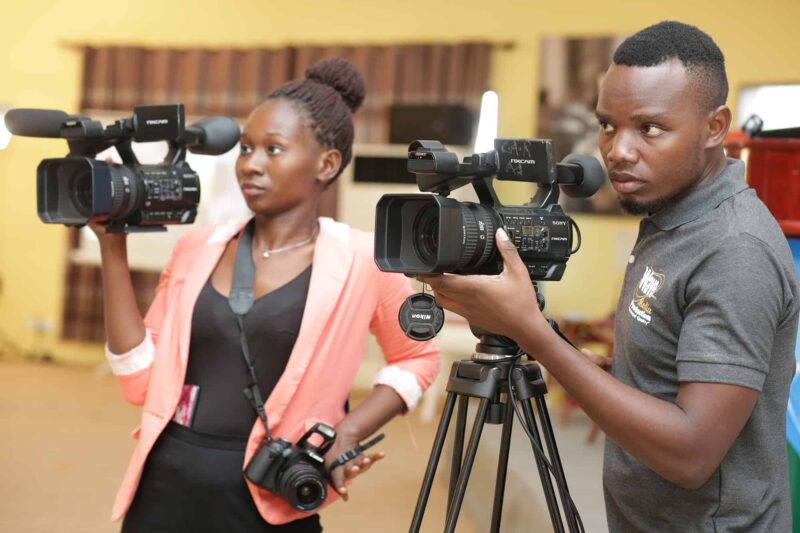When Loveness Mhagazi was commissioned by Tanzania Human Right Defenders Coalition (THRDC) to produce a five-minute radio documentary on human rights, little did she know that it would secure her a job as the head of Watetezi TV owned by THRDC.
Loveness, who is a university graduate in Mass Communication, says she managed to produce the documentary thanks to the six-week hands-on training in radio journalism she participated in that was conducted by Internews.
“During my three-year graduate studies at Saint Augustine University of Tanzania (SAUT) I never produced a single radio program on my own. I would hide behind group work, doing minor things,” says Loveness who graduated in 2018.
“When I graduated at SAUT I was not yet capable of preparing my radio script and was not confident enough to interview people. But all this changed after the Internews training. Now I can look for an angle, plan my story and then go to the field and get what I want,” she says.

Loveness was among 71 journalism graduates who attended the six-week training at SAUT, University of Dar es Salaam’s School of Journalism and Mass Communication (SJMC) and Zanzibar Journalism and Mass Media College (ZJMMC) between July and September 2018.
Another beneficiary of the training Hilda Ngatunga, who also works with THRDC now, says that the training increased her skills and confidence to work with any organization.
“If it wasn’t for my Internews training I don’t think I would have passed the job interview. Having done a lot of practical work during the training, the questions were easy for me,” says Hilda.
Hilda and Loveness are the few lucky students who got employment almost immediately after graduation. Many of their colleagues are still struggling, just as the media houses they seek to work for.
The two have made an impact. Loveness says after joining THRDC, she published a story on seven prisoners who went on hunger strike to speed up the processing of their long-standing cases. She was able to interview them and report their story, getting their case before the court of law for a first mention in seven years.
“At first, I thought being a lawyer I could serve the public better, but I have realized that my pen is even faster in solving such problems,” says Loveness.
Loveness, whose plan is to work with international organizations, says the existing laws and regulations in the country make it difficult to work as a journalist. She urges Internews to continue with the training. “The benefits have been clearly demonstrated. Graduates are now able to produce quality work and operate more professionally.”
The Internews training aims at imparting skills and knowledge to college journalism graduates and is financed by the United States Agency for International Development (USAID).
